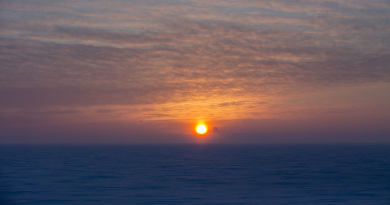Record breaking temperatures recorded in Arctic Russia

Sunday saw a slew of record-breaking temperatures in Arctic Russia, as a persistent heatwave continues to sweep Siberia, especially in the Sakha Republic (Yakutia.) .
In Saskylah, a small community in the Arctic Circle, the air temperature reached 31.9 C, the highest record since 1936. Land surface temperature reached 39 C.
The temperatures were among the data published on Monday by Copernicus, the European Union’s Earth observation program.
The readings, taken from the Copernicus Sentinel-3A and Sentinel-3B satellites, showed the land surface temperature in Siberia was above 35 C.
A peak of 48 C was recorded near the town of Verkhojansk, located in the Sakha Republic (Yakutia).
Hot, dry weather affecting forest fires
The hot, dry weather is an increasing concern in Yakutia were 64 forest fires were active as of Tuesday, said the regional government in a news release.
Although the fires are currently not threatening any communities or infrastructure, regional governor Aisen Nikolaev said the current climate was a key factor leading to the rapid increase in the number of fires.
In the update, the government said 1,586 people and 139 pieces of equipment were currently being used to fight the blazes.
The government said the current heatwave was “abnormally hot weather” and was expected to last until the end of June.
Dry thunderstorms have also ignited new fires in recent days, it says.
Write to Eilís Quinn at eilis.quinn(at)cbc.ca
Related stories from around the North:
Canada: Glacier mass decreasing across Arctic but at different rates, says study, Eye on the Arctic
Greenland: Greenland ice cores reveal historic climate clues, says study, Eye on the Arctic
Norway: Climate change hits back at Svalbard, coal mine flooded by melting glacier in Norway, The Independent Barents Observer
Russia: Retreating ice reveals new land in Arctic Russia, The Independent Barents Observer
Sweden: Glacier in central Sweden “collapsing” as climate warms, Radio Sweden
United States: Climate change a threat to bases across the U.S., Defense Dept. says, Alaska Public Media




Meanwhile, Antarctica is experiencing record-breaking cold temperatures.
Can you tell us where to find that information?
What are the implications of that, given that this is the start of winter in the antarctic.
i live in the yukon…yes in 50 yrs not the same place